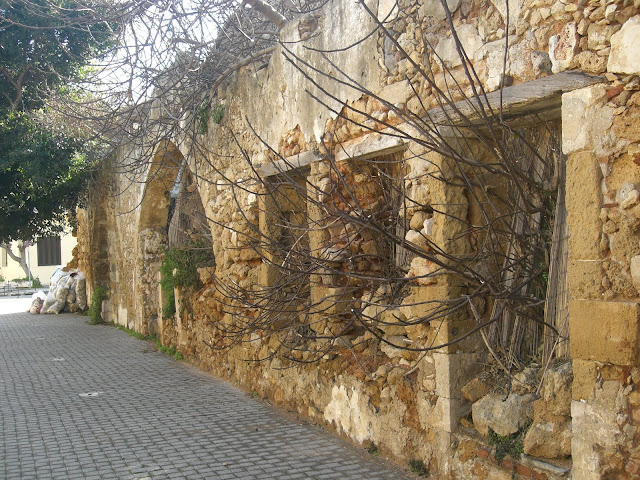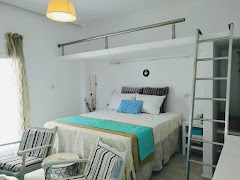The IMF admits it made mistakes in the way it handled its money-lending to Greece. This news is being reported as having made many people in Athens 'happy'. The measures that it asked to be taken were too harsh, they caused loss of faith int he banking sector, and the country lost 30% of its deposits.
While it's true that the IMF underestimated the impact of austerity on Greece, I prefer to look on the austerity measures as inevitable at any rate: there would have come a time when the political and economic conditions of Greece would have become untenable. Where a Greek would have had great difficulty trying to right the situation, an outsider would have had more success. As in any battle, there are some losers and there are some winners. So I'm not going to reprimand the IMF for what it did - it handled an extremely bad situation which looked irreparable most of the time in some kind of way that it thought would work.
In other less phlegmatic countries, their medicine may have worked. The reaqson why it didn't in Greece, though, has more to do with the fact that the IMF did not know Greece very well. It did not understand our culture. This is what led Greece to become a third-world country overnight, as well as the fact that all their measures were 'applied across the board' and they hit the poorest hardest - it was inevitable that something would give in the end.
As a Greek, I can partake the joy of the gleeful in Athens, and point my finger to the IMF as I say "We told you so!" But I refuse to do that because I know that there is a more positive way to look at what happened to Greece. As one of my followers recently commented:

... would not have been transformed into the profitable little business it is now:

The Greek economy has now reached the end of the beginning; the middle is a hard slog though...
©All Rights Reserved/Organically cooked. No part of this blog may be reproduced and/or copied by any means without prior consent from Maria Verivaki.
While it's true that the IMF underestimated the impact of austerity on Greece, I prefer to look on the austerity measures as inevitable at any rate: there would have come a time when the political and economic conditions of Greece would have become untenable. Where a Greek would have had great difficulty trying to right the situation, an outsider would have had more success. As in any battle, there are some losers and there are some winners. So I'm not going to reprimand the IMF for what it did - it handled an extremely bad situation which looked irreparable most of the time in some kind of way that it thought would work.
In other less phlegmatic countries, their medicine may have worked. The reaqson why it didn't in Greece, though, has more to do with the fact that the IMF did not know Greece very well. It did not understand our culture. This is what led Greece to become a third-world country overnight, as well as the fact that all their measures were 'applied across the board' and they hit the poorest hardest - it was inevitable that something would give in the end.
As a Greek, I can partake the joy of the gleeful in Athens, and point my finger to the IMF as I say "We told you so!" But I refuse to do that because I know that there is a more positive way to look at what happened to Greece. As one of my followers recently commented:
"Or in another view: how the measures spawned a host of different ways to respond, from setting up food co-oops, to supporting bartering and time banking, making Greece that much more resilient."If it weren't for the crisis, the crumbling walls you see below...

From my photo collection - March 2008
... would not have been transformed into the profitable little business it is now:

I had seen the transformation of this building taking place since some time last year - I saw the final outcome today on a short walk I took this morning.
The Greek economy has now reached the end of the beginning; the middle is a hard slog though...
©All Rights Reserved/Organically cooked. No part of this blog may be reproduced and/or copied by any means without prior consent from Maria Verivaki.

I think the most depressing thing with the economic crisis is that the poorest keep being the most inflicted. I don't know much about economy but as far as I see, you cannot help a country out of the crisis with atrocious austerity that can only lead to more suffering of people whose direct actions did not cause that same crisis...
ReplyDeleteI wish we all could start from zero, without debts. Cos then again, all countries owe something to someone :p
It's so complicated. I wish I had more of a "business head." Then I might understand economics.
ReplyDeleteAll I know is debt will get you in the end.
Here in the US we have a friend who purports to understand it. He is saying that there is an inevitable crash coming and "maybe" one should cash out retirement accounts (if one is fortunate enough to have SOME LITTLE STASH) and put the money "somewhere else." But where? He says all this on Facebook, then finishes by saying "But what do I know?" That is not helpful. Guess he is just "covering his a.." in case he's wrong.
And, yes, the weakest are always the ones who suffer the most in ANY country.
I just want to go "bury my head" or "dropout." But, we are not suffering much YET because our needs are very modest.
modest needs are mainly what saves us at the moment - that, and knowing that you have to fend for yourself as much as posisble
Delete